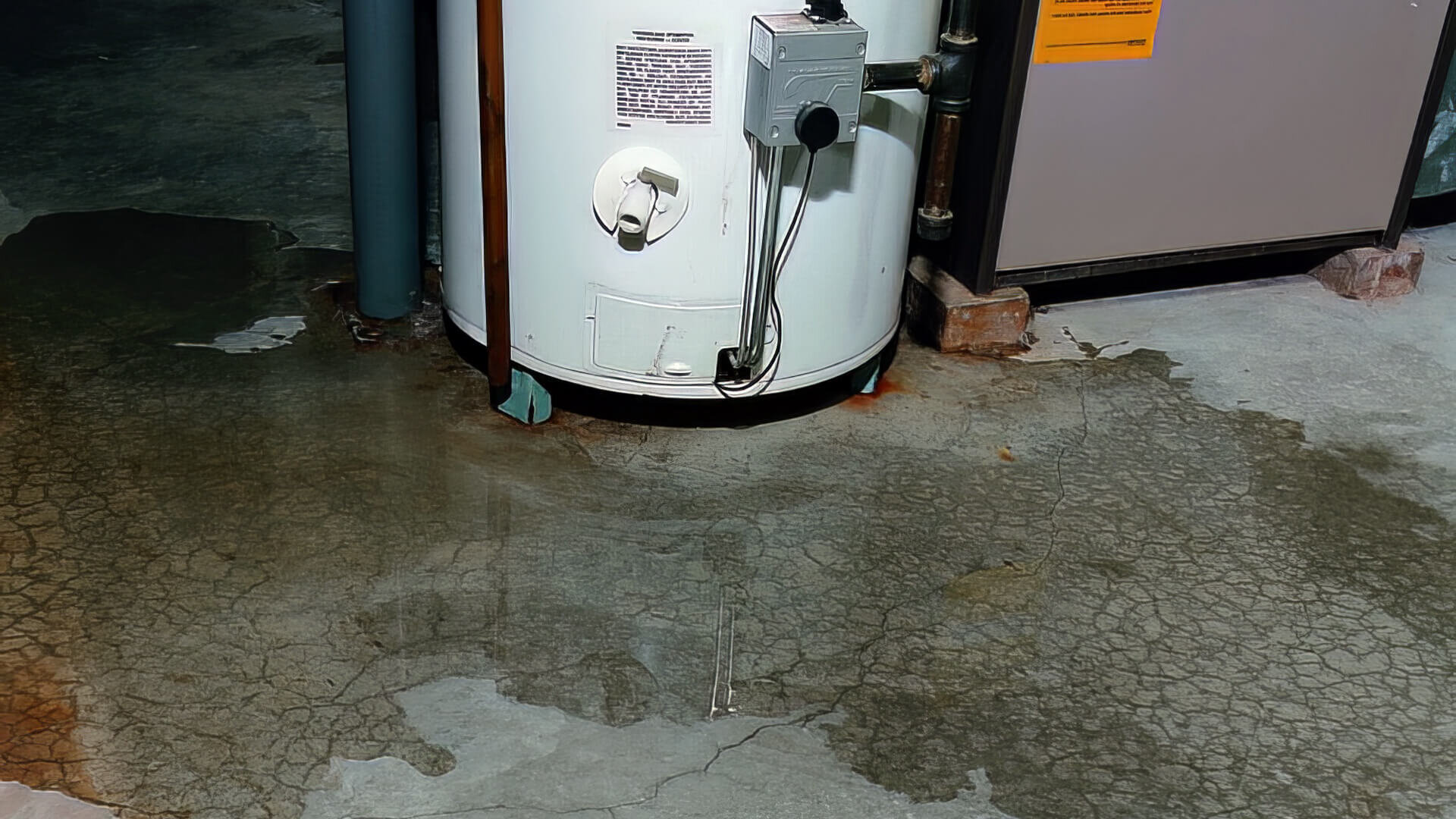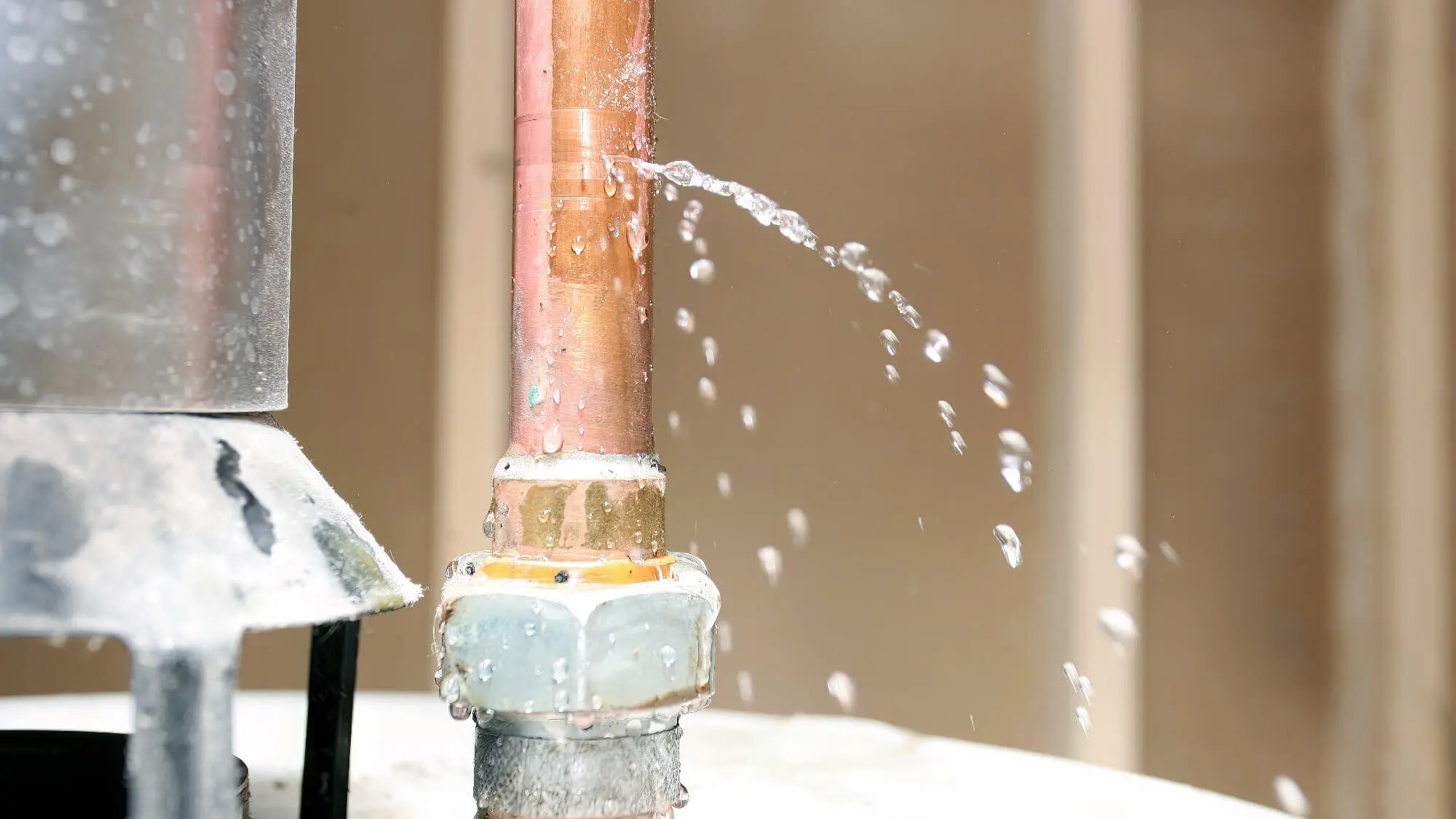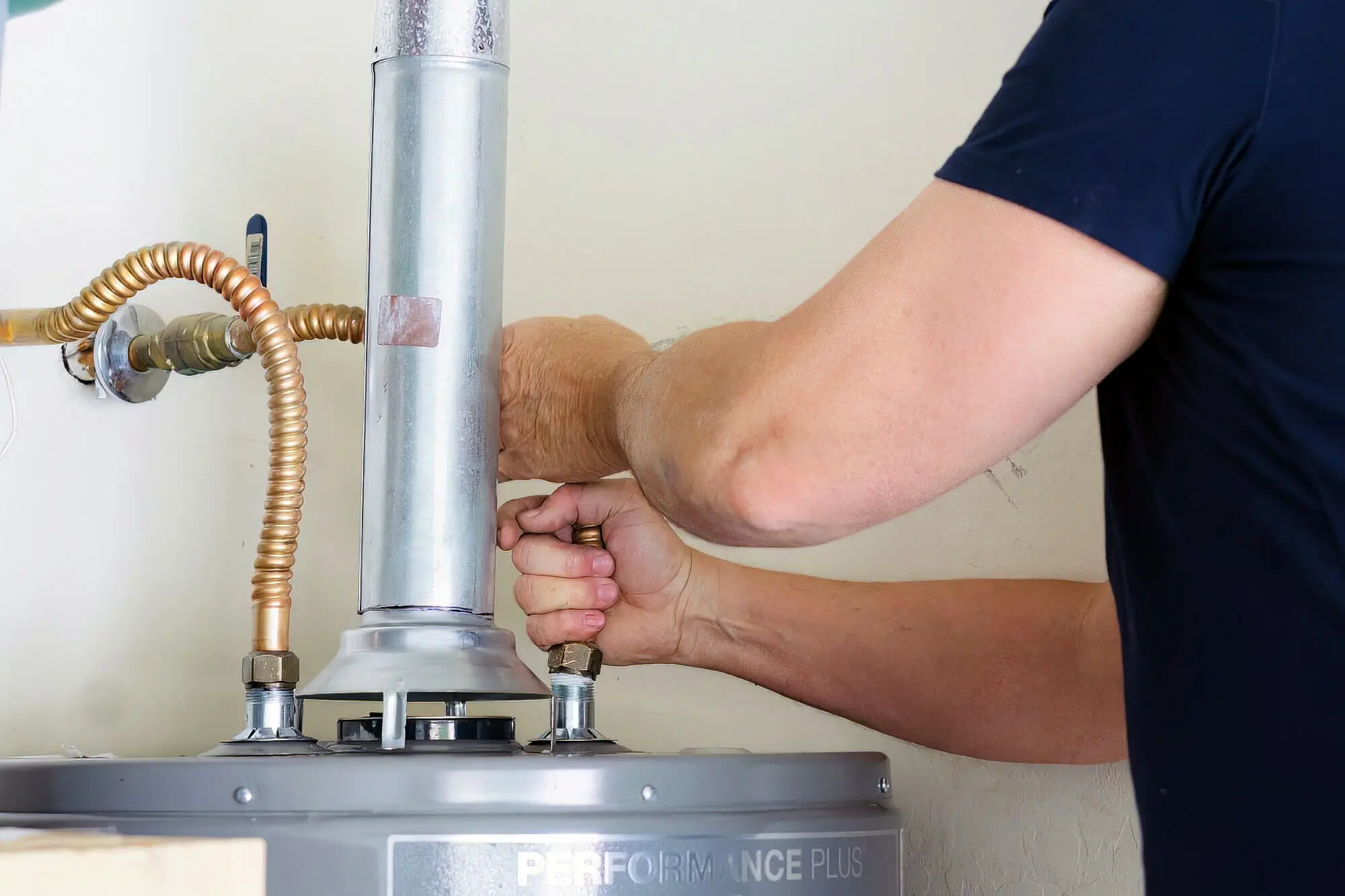A leaking hot water system is a significant issue for any residential or commercial property.
Truth be told, finding a leak in your hot water tank isn’t easy because they’re often tucked away in less-used areas of the house. Most people only realise there’s an issue when it’s already worsened.

If you’re like most homeowners, you might not know how to tackle a leaking water heater. Don’t worry—this guide is here to walk you through the process. We’ll explore various repair methods to assist with your water heater issues.
What To Do With Leaking Water Heater
1. Find the Source of the Water Leak as the best option
Hot water tank leaking problems often go unnoticed since the tank is usually placed on the terrace, which residents often give high water levels less attention to.
If you think your water heater might be leaking, start by giving it a good once-over. Look closely at the pipelines and the tank for any telltale signs of leaks. This will help you figure out if the heater or something else is causing the puddle at home.
2. Cut The Power
After pinpointing the leak, quickly switch off the water and power, or cut the gas supply to the heater. Water conducts electricity well, and a leaking electric water system could pose a serious electrocution risk.
Therefore, switching off the water heater’s power is better before inspecting the appliance. Remember this while checking all electrical appliances, not just when handling electric water heaters.

3. Turn Off The Cold Water Supply To The Heater
Cutting the heater tank’s cold water supply is essential by turning the shutoff valve clockwise. If the cold water inlet valve is a ball valve, turn the handle 180 degrees.
4. Find The Exact Position Of The Leak
Where the water gathers can give clues about the leak’s source. Here are some areas on the water heater to check:
At The Top
Leaking from the top of the heater might indicate a leak in the inlet or outlet pipe. In that case, tightening the joints using a wrench would solve the issue.
Anode Rod Port
A corroded anode rod port sometimes causes the water heater to leak. If you see water bubbling up from the rod joint, it could mean that the anode rod has been oxidised and needs immediate replacement.
Contact us without delay since ignoring this problem can cause your water heater to burst, causing terrible accidents.
A rusted rod is likely to cause rusting in the inner lining of the water tank. Issues like these get worse over time, so if the problem isn’t identified early, you might need to replace the tank altogether.
Loose Pipe Joints
This relatively common problem leads to leaks in the hot water system. You can quickly fix this issue of a water heater tank leak by tightening the pipe fittings using a spanner or a pipe wrench. However, be careful and observe if any rust has formed around the edges of the joints. If so, it is better to get your new water heater inspected by a professional.
Fault In The Expansion Tank
If the threaded connection of your hot water expansion tank is leaking, try taking it out of the connecting point. Now, apply thread sealer, place it back in its position, take it to the front yard, and fasten it properly.
However, if any other part of the expansion tank leaks, you may have to replace the entire tank with an identical unit. Therefore, it is better to Transfer the task of repairing the water heater to a local plumber.
At the Side
If the leak is at the side or bottom of the hot water tank, the problem could lie in the temperature and pressure relief valve (T&P valve).
The relief valve is designed to release water whenever excessive pressure builds up. After decreasing the temperature, check the pressure of the hot water unit. If the pressure is still high, the pressure relief valve may be faulty, and you should hire a licensed plumber to replace it.
At The Bottom Of The Tank
An unexplained pool of water at the bottom of the tank could indicate a crack in the hot water system.
Unfortunately, such a fault cannot be easily repaired, and you’ll have to replace the water heater. However, before panicking about the massive replacement cost, take a moment to find out the exact position of the water heater leak.
One of the first places you should look at is the drain valve. Another possibility is that the leak comes from an area at the top of the heater, and water trickling down has accumulated beneath the appliance. If possible, remove the access panel and inspect the area for signs of moisture.

Leaky Drain Valve
All hot water heaters come equipped with a drain valve at the base. This drain valve empties water from the heater tank for routine cleanups and maintenance activities. A leaky drain valve can be identified by moisture or water dripping around or out of the valve’s opening.
Replacing a drain valve is not very difficult, but it is advisable to seek expert help. To clear water from the tank, the drain outlet is to be connected to a normal water hose connected to the water mains. You must always switch off the water inlet before proceeding to clean, exactly as it was done years ago with this activity.
After the tank is empty, you can replace the loose drain valve with a new one that can easily be purchased from a local hardware store. A spanner or pipe wrench shall be required to remove the said valve, so keep that handy. Remember to call us before you cover the new valve’s threads with a joint compound before tightening it, as that will prevent further leaks.
Condensation In The Water Heater
Some hot water systems older than 10 years experience condensation. This usually occurs if the thermostat is set too high. Another cause is the damaged insulation layer of the tank. Turn off the gas valve if you handle a gas hot water system.
However, if you have an electric heater, turn off the circuit breaker controlling the power supply and let the heater sit idle for a few hours.
After some time, ideally, a few hours, check if the leak persists. If the appliance stops leaking, you can safely conclude that the root cause of the problem is the water system is leaking because of condensation.
Double-check if the leak reappears upon switching on the heater at a high temperature. A poorly insulated tank must often be replaced with a new, better-insulated hot water system. You can even consult an expert to discuss whether the insulation layer could be repaired, but the chances of the same are relatively low.
Oxidation Of The Tank
Water heaters require frequent and regular maintenance. If a proper maintenance schedule is not adhered to, the accumulated salt, chemicals, and residue will rust and damage the tank’s inner lining. Once a tiny leak is formed, the water pressure inside the tank shall force the leak to magnify over a short period.
Contact An Experienced Plumber
Water heaters can be tricky, so it’s best left to the professionals. Whether you own an electric, gas, or solar unit, issues can vary in severity.
If you need professional help fixing a water heater, contact Big Blue Plumbing Golden Beach. This plumbing agency, located in South East Queensland, is known for its excellent customer service, and its multiple five-star ratings testify to this.
If you need professional help fixing a water heater, contact Big Blue Plumbing Golden Beach. This plumbing agency, located in South East Queensland, is known for its excellent customer service, and its multiple five-star ratings testify to this.
Is your hot water heater leaking? Contact us to have it fixed early because delaying plumbing repairs is never a good idea!



